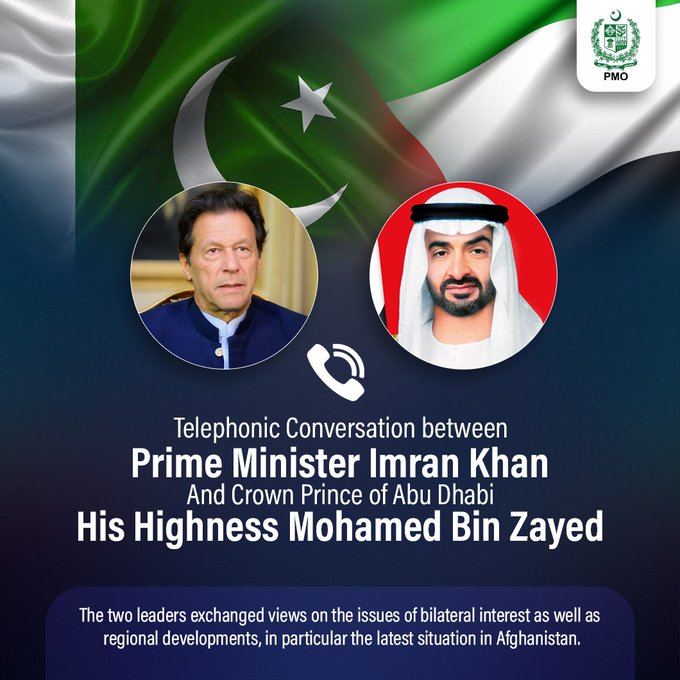
Pak PM Imran Khan's had phone calls with three of the top Gulf Arab leaders. Apparently the first one was with MbZ, the second with MbS and finally with the Qatari Emir. Obviously, Afghanistan was the main topic and the return of the Taliban is a huge issue for KSA & UAE. 





Emirate 2.0 throws a major monkey wrench into the Saudi/Emirati struggle against Islamism/jihadism. Riyadh & Abu Dhabi had been making significant progress in rolling back this phenomenon in the Middle East in the decade since the Arab Spring with the most recent gain in Tunisia.
The Saudi-Emirati alliance defeated Islamists who have been backed by Turkey and Qatar. The Taliban comeback represents a major setback to the MbZ/MbS agenda in the region because it will likely energize Islamists throughout the Arab/Muslim world.
More importantly though, from the Saudi and Emirati POV, the Taliban comeback allows Turkey and Qatar to play a much larger role. And they know that Doha and Ankara are close to the Pakistanis.
The Saudis & Emiratis take comfort from the fact that neither Turkey nor Qatar has financial leverage over the Paks the way they do. So, this phone call was a reminder to Islamabad that we know you need all the help you can get but let's not get carried away.
So, the Pakistani strategy for Afghanistan is constrained by Islamabad's need to ensure that Riyadh and Abu Dhabi are on board. Another way for the U.S. to shape Emirate 2.0 without having to be directly involved.
While the Saudis and Emiratis will be able to constrain Taliban via the Pakistanis they still have the problem in the form of the psychological boost to Islamists and jihadists.
Thus, unlike their recognition of v. 1.0, KSA and UAE will drive a much harder bargain before they recognize Emirate 2.0.
Meanwhile, Iran - despite enhanced ties w/ the Taliban - is having its own challenges with Emirate 2.0.
It was hoping for a balance of power of sorts b/w the Talibs & their foes but has to deal w a regime in which its traditional allies have a minor role
It was hoping for a balance of power of sorts b/w the Talibs & their foes but has to deal w a regime in which its traditional allies have a minor role
https://twitter.com/business/status/1434840215831601187
• • •
Missing some Tweet in this thread? You can try to
force a refresh



